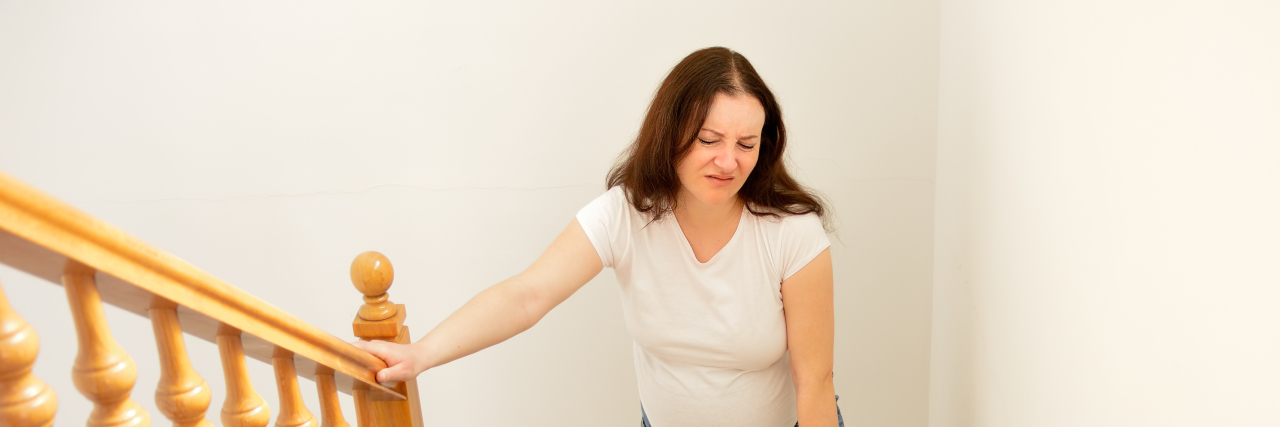I went for an appointment the other day. On arrival, a security guard at the entrance took my name and spoke into his radio that I had arrived. A message came through, “Does the client need me to come downstairs for the meeting?” Without a second of thought, the guard responded into his radio, “No, the client can come up,” before sending me up four flights of stairs.
- What is Fibromyalgia?
- What Are Common Fibromyalgia Symptoms?
It would’ve taken a moment to stop and ask me if I was able to walk those four flights. One tiny question, that’s all that was needed. As I slow-crawled my way up what felt like Mount Everest, I felt the stabbing pain creeping into my legs, the weakness debilitating my ascent, and began to question why I hadn’t spoken up. This is the problem with having a hidden disability in an ableist society. Everything about our culture says that if you see a 27-year-old woman confidently walk into your building without any sign of a limp or a walking aid, then she is able to walk as long or climb as many stairs as necessary. If you’re honest with yourself, would you have made a different decision than that guard?
The reality for me, however, is that walking up four flights of stairs cost me. I have a condition called fibromyalgia which manifests itself through chronic pain that can strike anywhere in my body at any point. It’s a highly unpredictable condition, but one of the things I can predict about it is that certain activities make my pain much worse. As I made my way up the stairs, my head wasn’t focused on my upcoming appointment or what I would eat for lunch afterward; it was obsessing over the inevitable flare of pain in my legs that would come from one security guard making an ableist assumption.
Something has to change from both directions. Yes, we all need to stop making assumptions about the health of others, but that starts with those of us with conditions speaking up. I have no doubt that if I had interjected, the security guard wouldn’t have made me climb the stairs. It may even have encouraged him to think more carefully about making assumptions in the future. When there are no visible markers of the pain we experience, we have to be vocal rather than letting ableism wash over us.
And for everyone reading this (myself included) — maybe it’s time to challenge the assumptions you make? The next time you see someone who looks healthy enough to climb those stairs, or stand on the bus, or carry their own tray to the table, give them a chance to share their voice. I don’t think there’s a single one of us who can’t improve our awareness and understanding, so now might be a good time to start.
Getty image by Manuel F-O.

